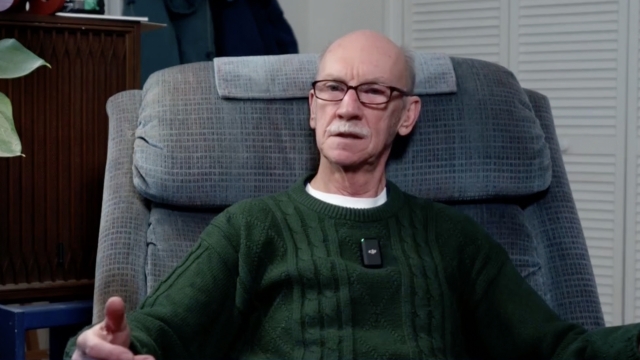From the pillbox and paintings to the peaceful lunches with his wife Lynn, retirement is calm as can be for David Steed — except when it's not.
Three days a week, Steed drives shuttles in Saco, Maine. He helps older residents get to card games and doctor's appointments. And he gets paid, which puts him among the 11 million Americans 65 and over in the workforce.
"Knowing that you're helping people, and knowing that they really appreciate it," Steed said, "keeps me young and on the move, all the time."
As boomers become seniors and Americans live longer, those 65 and up now make up 22% of the population. Two decades ago, they made up just 3% of the workforce. Now, that figure has more than doubled.
Some desire community or continued purpose, like Steed. "I've had a pretty good life," he said, "and an excellent life with my wife. I want to give back. And this is my way of doing it."
But for many, the decision to work is more need than want. The National Council on Aging claims 4 out of 5 older Americans can't withstand a financial shock.
SEE MORE: A Colorado man's aging parents kept falling. He invented the solution
"The cost of living has increased, but their retirement income, their pension isn't necessarily going up," said Patricia Oh, senior program manager and researcher at the University of Maine's College on Aging. "But if people are going back to work simply to pay for their property taxes or their heating or their medication or their food, that is problematic, because eventually we all reach an age where we can't afford it."
In Maine and across America, programs are emerging to bridge folks back into the workforce.
For years, the U.S. Department of Labor's Senior Community Service Employment Program has subsidized training and part-time work with agencies across the country. And in the last three years, AmeriCorps Seniors has poured millions of dollars into programs that get older Americans volunteering, often as part of a pathway back to employment.
"What I hear from older workers is that they really want flexibility," Oh said. "They want that 10-20-hour-a-week position. They don't want a 40-hour-a-week commitment."
For Steed, the money is minor. Work brings a paycheck and purpose in an otherwise calm retirement.
"And that's all I need. It's a pleasure knowing that I'm doing something good for the people of Saco," Steed said.
Trending stories at Scrippsnews.com




